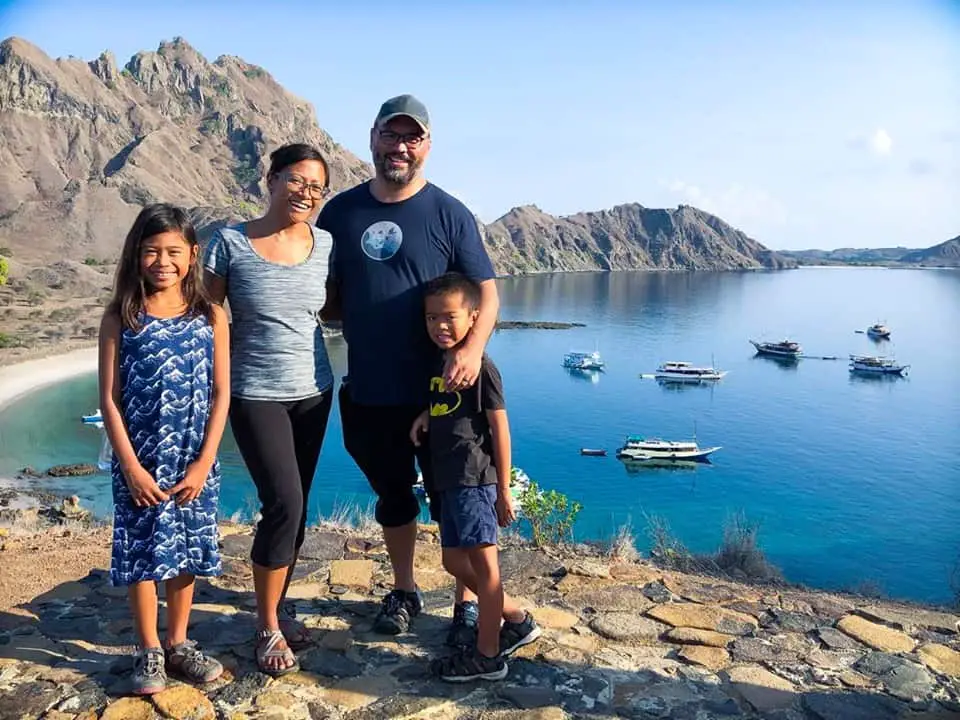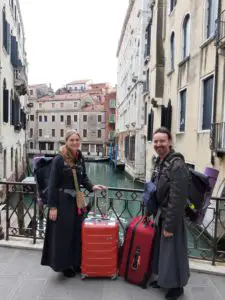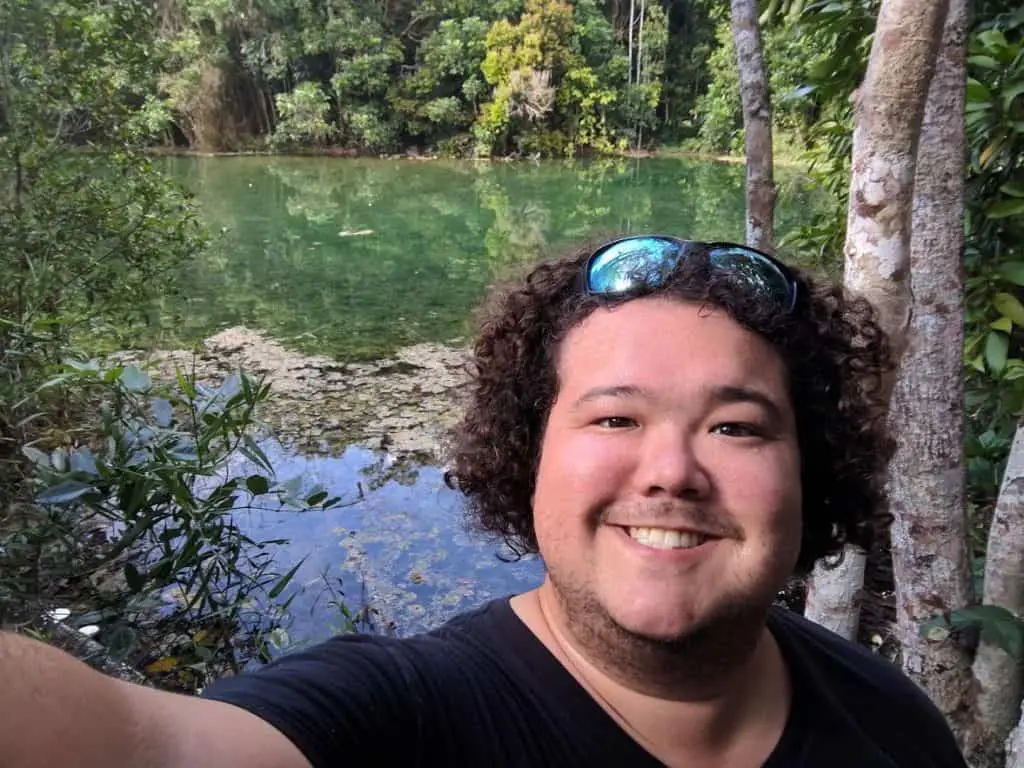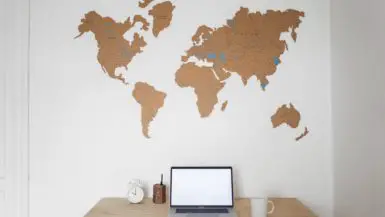We asked long-term nomads what they’ve learned from their years on the road and how their attitude toward nomading has changed over time.
Whenever people ask me how long I’ve been traveling as a nomad, I say, “I just started in September 2019 — I’m a baby.” There’s a bit of a street cred you have the longer you’ve been traveling, especially if you started doing it before it was a thing.
I went into this thinking I’d do it for maybe 1-2 years – if I liked it. So far, so good (…minus Coronavirus). I’ve been nomading for about six months and I love it. I have no idea how long I’ll want to do it for. But I do often wonder how my attitude and nomadic lifestyle might change over time.
So I asked some nomads that have been traveling for a while how this life has worn on them and grown on them over time. Digital nomads lead a fairly unconventional life, so there isn’t really one way of doing things. But many of the travelers I talked to experienced similar changes the longer they traveled for. So if you’re thinking about becoming a nomad or are just starting out, read on – you just might learn something about your future.
In the beginning…
Many nomads set out to see the world, and they wanted to experience as much as they could. “When I started it was all about exploring the new. It was about seeing the world. I chose where I wanted to go based entirely on what interested me,” says Alison Shuman, who hasn’t had a fixed address since 2011.
They didn’t stay long in one place, traveled fast, and covered a lot of ground as a result. “At the very beginning, I changed the country every month, hopping every week from one place to another, always on the search for the best waves,” says Manuela Nayelli Wolf-Sánchez, an avid surfer.

“I would try to see as many places as I could before my visa would run out. I went to 16 cities in 16 weeks,” say Kassandra Bowers (owner of Lakazdi.com). She and her partner, Tim Marsh, have been on the road for six years. Finances were also a major factor in choosing destinations for them. “At the start, with little money, every decision was about saving money.”
Moving frequently certainly tends to cost more, and nearly all the nomads we spoke to slowed down their travel after a while.
Slowmadding
As our bright-eyed travelers eager to see the world had more time traveling under their belts, they began to see the benefits of staying in one place for longer.
“We have slowed down a bunch. Initially we were doing two weeks then a month stay in each location. Now we are thinking two to three months would be ideal. There are things like language classes or gyms that would be more doable if we were in locations for a few months. In addition, longer stays means we can negotiate better prices for lodging and we spend less on transportation,” says Clint Bush, who travels with his wife and two children. “One thing that has become critical on our nomadic lifestyle is that we NEED downtime,” he says. “Nothing hides when you spend this much time together, so ignoring mental health only manifests into bigger problems, and really quickly at that. Moving is tiring. Whenever you go somewhere new, it takes time to get the lay of the land, to figure out things like what the prices should be, where the grocery store is, and how to be culturally appropriate.”

But if you’ve been doing it long enough and go back to the same places – where you know what to expect – there’s no longer that learning curve. Kevin Ohashi (owner of reviewsignal.com), who has been nomading for 18 years says he has, “very little discomfort just showing up somewhere new and figuring it out.”

Our nomads started staying in one place longer because it made their daily lives easier. “Now my decisions about where I stay are more based on whether or not I will have a comfortable place to work. We position ourselves closer to the local suburban shops and a park to exercise in. We buy monthly public transport cards, get to know our favorite eating places, build relationships with locals, and maintain stable routines,” say Kassandra and Tim.
After 10 months of changing locations constantly, Manuela says she got tired. “I just wanted to rest, surf everyday, have friends nearby, have more clothes, kitchen utensils and luxury items (like my own bed!).” She decided to stay in one place for eight months.
A bit ironic, isn’t it? We become nomads to avoid the humdrum, the mundane, the routine – but end up realizing we need a bit of normalcy and routine.
Seeking connection
Even more than convenience and routine, what nomads came to crave and value the most over time was community. “I make more and more of my travel decisions based on places that will have a community I can join…That constant drive for the new and exciting has turned into a drive to find community.” says Alison.
For people like Kevin who have been nomading for a long time, that community can get easier to find as you revisit places and meet people multiple times. “I know people everywhere now it seems; I can rarely go to a new place and not have some connection,” he says.

Forming deep, meaningful friendships and romantic relationships can be a challenge. Nomads often develop friendships quickly, but those connections can be hard to build when you only have so long with someone, and can be even harder to maintain over time and distance. Especially for those committed to the nomadic lifestyle, it can be difficult to find a partner who shares that vision. For others, they struggle being away from family and friends, especially during hard times.
In addition to the logistical and business challenges, Manuela says some of the hardest aspects of being a nomad are, “connecting with someone and then having to say goodbye, and feeling lonely sometimes.”
“So many times I meet someone I connect with and they end of moving on the next day, week, month. It takes a lot of energy, effort and time to grow a deep friendship and when traveling you don’t often have that time,” says Alison. “A lot of people drop out of this lifestyle due to loneliness. One way I’ve started to combat this is to return to the places I’ve been in the past where I know my friends will be.”
At the same time, in a sense, nomads have more flexibility to visit and spend time with the people they care about. “I have near complete freedom to include people in my life by simply showing up in their country/city. It also works for events and experiences, I’ve been fortunate to be able to attend things like Oktoberfest on a whim because I made a friend from Munich and don’t have anywhere I have to be,” says Kevin.
Making the most of every experience
The nomad lifestyle is so appealing because of the rich opportunities it offers for new and exciting experiences. Kassandra and Tim say, “every year lasts for a very long time because it is filled with new things and moments of amazement.”
Alison feels the same way. “Once I step out of the coworking door, I step out into the world. I learn by doing. Since starting this journey I’ve learned to ride a motorbike, learned to scuba dive and now have almost 100 dives under my belt, I’ve spent three months eating, drinking copious amounts of wine, and hiking the Caucuses Mountains in (The Republic of) Georgia, learned some Arabic in Dahab, Egypt, learned to cook Thai food. The list goes on and on.”
Another beautiful part of the nomadic experience are the cross-cultural friendships and understanding that emerges. “One of the best things about being nomadic is seeing and experiencing how folks live in all parts of the world. We have found a lot of commonality as well as some interesting and often fascinating differences,” says Clint.
“I’m part of a global community,” says Alison; “as a nomad I have found a community of people like me. Then I get to go visit their countries and I have people to stay with, to show me around their cities, introduce me to their friends.”
Nomadily ever after?
When we asked our nomads whether they see themselves continuing in the lifestyle for the rest of their lives, we got pretty much every answer imaginable. Most stayed away from a definitive “yes” or “no” – and rather plan to reevaluate over time.
For some, like Kassandra and Tim, they say they see no end to their nomadic lifestyle, but also think about what will happen when they are “so old that our bodies can’t keep up with our dreams.”
Kevin, on the other hand, questions whether he should continue every year. He can’t see himself settling down in a traditional job with only two weeks of holiday per year – but could potentially envision slowing down and building a home base. That theme was echoed by several nomads, who expressed wanting more stability and a “homebase,” but coupled with the freedom to still travel for large portions of the year.
Overall, nomads value freedom and flexibility – whatever form it takes.
Famous last words

We asked our nomads what advice they’d give to nomads just starting out, or thinking about taking the plunge into the lifestyle. Here is what they said.
- Kevin: “Make sure you have a network and skills before dropping everything and just going. I am sure there is a certain appeal to simply jumping in head first, but developing a professional network is a long-term investment. If you skip it, it can be difficult to find and keep work. Those professional relationships can pay off for years and years if you nurture them. You tend to develop weaker connections while traveling because of the transient nature of nomading.”
- Kassandra & Tim: “Don’t think of yourself as a digital nomad. There are so many different ways to live on this planet and simply not staying in the one house does not define you or require you to fit into any other mold.”
- Clint: “One piece of advice is to take it in small chunks. It will quickly get overwhelming if you try to take on too much too fast. Don’t try to plan everything because it will never end up the way you think. Plan enough to move in your next direction and enough to have a plan b, but leave some of the details to chance. You will be pulled in so many other directions, you will welcome the mental break. Also, don’t be afraid to take breaks even if it means staying in the apartment for the day. One other tip is research what it means to be a respectable citizen in the area you are visiting. Flying under the radar is a good travel skill and being respectful and well-mannered goes a long way to meeting new people and enjoying your time.”
- Alison: “Learn about the places you are traveling to! Never forget that we are privileged guests. Learn about local customs and abide by them. Take an interest in the place you are staying in, not just the travel community.”
- Manuela: “Don´t make too many plans, just decide spontaneously – and don´t take your decisions out of fear!”







Leave a reply